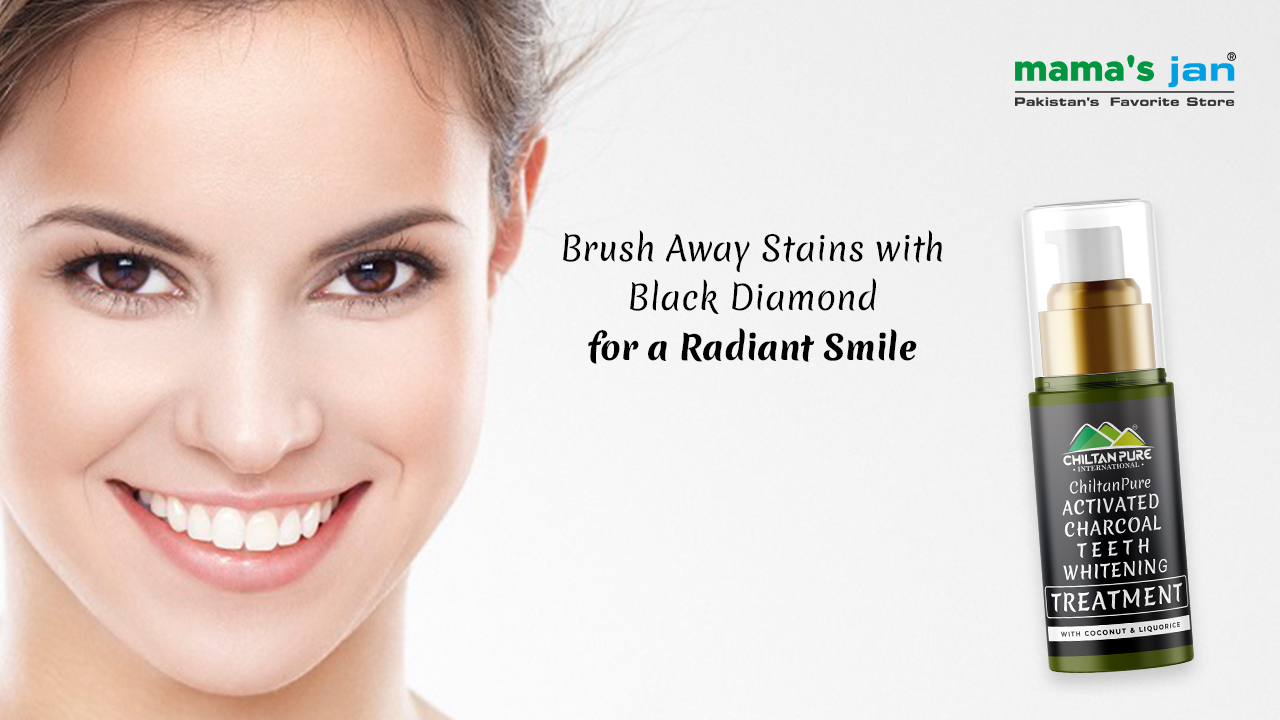A fine-grained powder known as activated charcoal is created by oxidizing wood, coconut shells, and other natural materials at high temperatures. It is a component in toothpaste, cosmetics, and teeth-whitening products.
Activated charcoal, commonly called activated carbon, is a kind of carbon that has undergone processing to improve its adsorption capability. Without oxygen, it is produced by heating carbon-rich materials like wood, coconut shells, or coal at high temperatures. Due to its high porosity and surface area, this technique creates a polymer that can bind or adsorb various chemicals.
Charcoal for teeth
Even though it is used primarily for medicinal applications, activated charcoal is remarkably comparable to the conventional charcoal you use to fire your grill. To create it, charcoal is heated with a gas. This causes the mineral’s enormous pores to expand, allowing chemicals to be trapped inside. Activated charcoal has historically been used to treat gastrointestinal gas, cholestasis during pregnancy, and cholesterol reduction. Both taste and odor are absent.
How does it work?
To make the surface stains and plaque on the teeth simpler to remove, the pores of the activated charcoal bind with these rough places. After the charcoal has had a chance to stick to your teeth, you may find it, and the mineral will take the plaque, food particles, and surface stains with it. The way activated charcoal whitens teeth is by completely removing surface stains. Because it sticks to the grit on the teeth, activated charcoal does not change the color of highly discolored or naturally yellowing teeth. Utilizing more extreme whitening methods, such as professional bleaching, is necessary.
Removes surface stains
The adsorptive qualities of charcoal allow it to adhere to and eliminate stains from the surface of teeth. This includes colors from certain fruits, coffee, tea, or other alcoholic beverages. A noticeably brighter grin can be achieved by using charcoal particles to help lift and eliminate these stains.
Gives whitening effect
Activated charcoal has a very porous structure; charcoal teeth whitening treatments frequently incorporate it. Activated charcoal’s porous structure enables it to efficiently absorb and eliminate surface discoloration, which results in a whitening effect on the teeth. This can assist in whitening the teeth’s overall color and enhancing their look.
Nonabrasive texture
A benefit of using charcoal to whiten teeth is that it is typically regarded as mild and nonabrasive compared to certain other teeth whitening techniques. The enamel of teeth may be damaged by traditional whitening techniques that use abrasive or harsh chemicals, such as cosmetic dentistry procedures or specific whitening toothpaste. When used correctly and moderately, charcoal teeth whitening treatments are generally considered mild and less prone to cause enamel erosion.
Eliminate germs
Toxins and bacteria in the mouth can be absorbed by charcoal thanks to its inherent antibacterial characteristics. Fresher breath and better dental hygiene may result from this. Routine oral care procedures like brushing, flossing, and professional tooth cleanings should not be substituted by charcoal teeth whitening.
Chemical free cleaning
Products containing charcoal might be an attractive choice for anyone looking for chemical-free, natural solutions for teeth whitening. Since charcoal comes from natural sources, it frequently lacks additives, harsh chemicals, and artificial flavors. People with sensitivity or who choose all-natural dental care products may find this particularly useful.
Remove plaque tartar
Charcoal may possess antibacterial qualities that can help prevent the formation of germs that cause plaque. However, further study is required to confirm this. Teeth whitening with charcoal may enhance dental health by decreasing plaque and tartar accumulation and promoting a cleaner mouth.
Stops teeth decaying
Fluoride keeps your tooth enamel strong, which helps guard your teeth against decay and cavities. Some data suggest that charcoal toothpaste causes more tooth decay. Some teeth may get stained as a result. Older teeth may develop accumulations of charcoal in their cracks and fractures, but they can be cleaned easily.
Freshens breath
The usage of charcoal in oral care products is a result of its capacity to absorb odors. By absorbing germs that produce bad breath and reducing breath in the mouth, charcoal teeth whitening can aid in breathe freshening.
Cost-effective
Compared to other over-the-counter whitening kits or professional dental whitening procedures, charcoal teeth whitening solutions, such as charcoal powder or toothpaste, can be comparatively affordable. They provide a reasonable choice for people who want to whiten their teeth without going over budget.
FAQs
How long does it take for activated charcoal to work for teeth whitening?
After a week of consistent use, you should typically notice results. During this time, charcoal should assist in removing surface stains and discolorations from your teeth brought on by routine food and drink without harming your enamel.
Can I use activated charcoal on my teeth every day?
Too abrasive for daily use is charcoal toothpaste. The enamel on your teeth might erode if you use an excessively abrasive substance. Your teeth could appear more yellow if the calcified, yellow dentin is exposed. Additionally, it may make your teeth more sensitive.
Can I leave charcoal on my teeth overnight?
Activated charcoal will help you have a bright smile. Often, activated charcoal may be used for a rapid whitening procedure rather than overnight whitening. To enable the charcoal to bind to stains and discoloration, you should keep it on your teeth for around three minutes.
